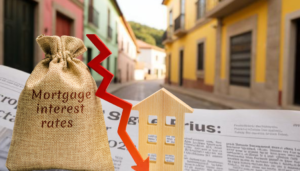Explore France’s proposed 10-year tax exemption to boost rental property investments and revive the France real estate market for individual investors.
In a bid to invigorate the languishing rental property market, the Prime Minister of France has expressed intentions to stimulate rental investment, albeit without delineating a concrete strategy. The president of the National Real Estate Federation has proffered a potential remedy: a decade-long tax exemption aimed at enticing individual investors into the rental sector.
The backdrop to this proposal is a landscape marked by stagnation, characterized by the implementation of rent control measures in several prominent urban centers, a prohibition on the leasing of energy-inefficient properties, and the phasing out of the Pinel tax incentive for new constructions. Such regulatory shifts have contributed to a notable decline in rental investment enthusiasm, evidenced by a staggering 30% drop in rental management mandates assigned to Fnaim member real estate agencies in 2024 compared to the previous year.
Recognizing the pressing need to rejuvenate rental investment to address the housing demands of the French populace, the Prime Minister has yet to articulate a definitive solution. The proposed framework suggests that any French citizen acquiring a property for rental purposes could benefit from a ten-year exemption from income tax on rental income, commencing after a decade of ownership. Furthermore, this exemption could be extended to a maximum of 15 years should the property be newly constructed or undergo “substantial” energy renovation.
Additionally, the notion of establishing a formal tax status for private landlords, a concept championed by Fnaim and other stakeholders for several years, is gaining traction. This status aims to acknowledge the economic contributions of landlords—often unfairly categorized as mere rentiers—by permitting them to deduct a portion of the property’s value from their taxable income annually.
As the discourse surrounding rental investment evolves, one cannot help but ponder whether these proposed measures will indeed catalyze a renaissance in the rental market or merely serve as a temporary band-aid on a more profound systemic issue. The complexities of the housing market demand not only innovative solutions but also a nuanced understanding of the interplay between regulation, taxation, and the economic realities faced by both landlords and tenants alike.









